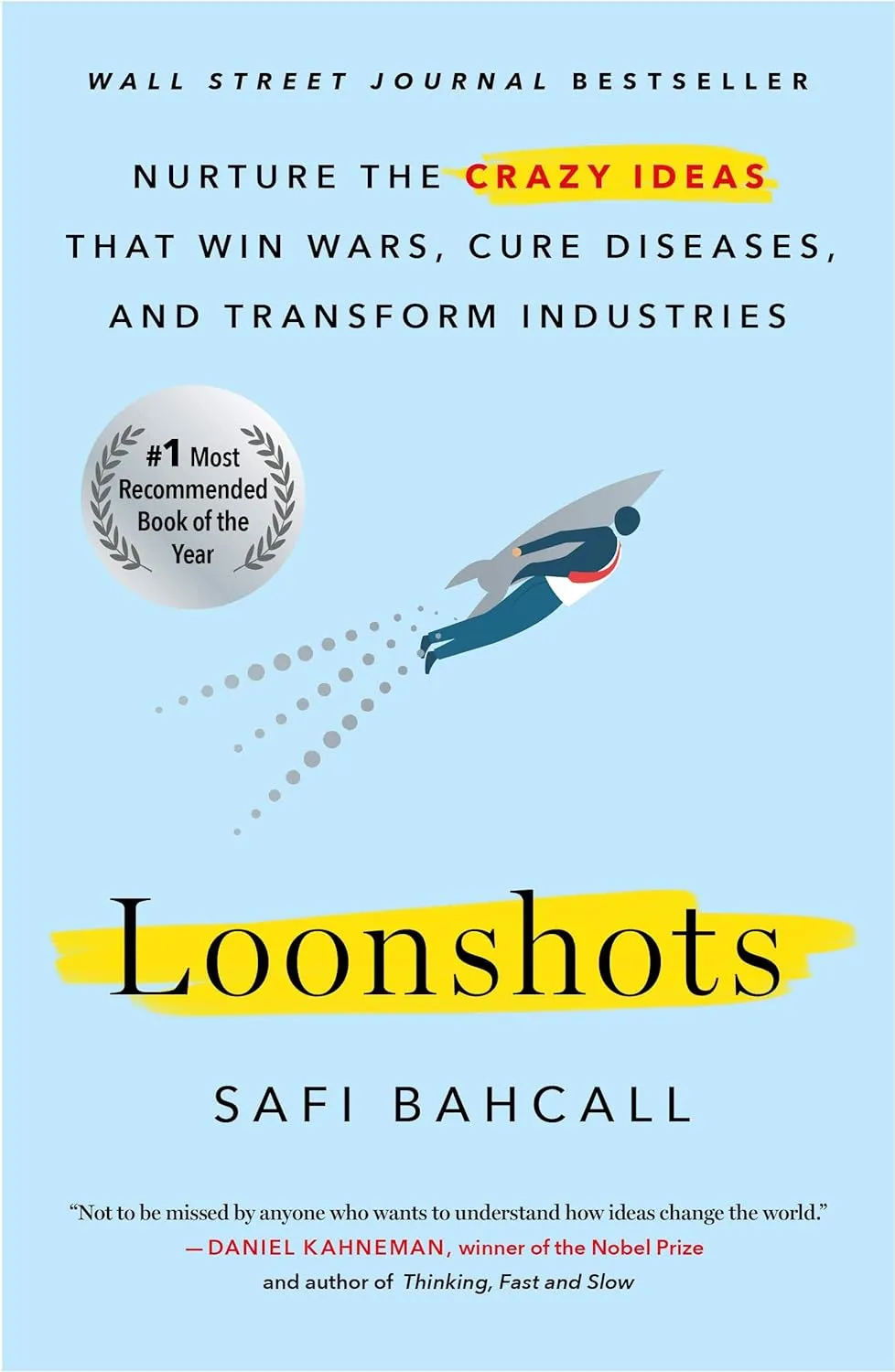Resource Books
Book Categories

Loonshots: How to Nurture the Crazy Ideas That Win Wars, Cure Diseases, and Transform Industries
Amazon Links:
| Kindle | Audiobook | Paperback |Hardcover |
Author: Safi Bahcall
Summary/Excerpt
"Loonshots: How to Nurture the Crazy Ideas That Win Wars, Cure Diseases, and Transform Industries" by Safi Bahcall explores the concept of loonshots, which are innovative ideas that have the potential to revolutionize industries and change the world. The book applies the science of phase transitions to understand how teams, companies, and groups can transition from embracing new ideas to rejecting them, and how to create an environment that fosters loonshots. Bahcall argues that loonshots are not just the result of a company's culture, but rather the result of its structure, and that a balance between fluidity and solidity is necessary to generate and bring loonshots to market.
He outlines three rules for nurturing loonshots: separating the phases of idea generation and implementation, maintaining a dynamic equilibrium between creativity and structure, and achieving critical mass. The book also delves into the history of loonshots, including the role of innovation in World War II and the decline of companies like Kodak and IBM. Bahcall draws parallels between the spread of loonshots and other phenomena, such as the spread of fires in forests and the behavior of birds and fish. "Loonshots" has received praise for its unique approach to understanding innovation and creativity, and has been recommended by notable figures such as Bill Gates, Daniel Kahneman, and Malcolm Gladwell.
Note: As an Amazon Associate I earn from qualifying purchases.

Loonshots: How to Nurture the Crazy Ideas That Win Wars, Cure Diseases, and Transform Industries
Amazon Links:
| Kindle | Audiobook | Paperback |Hardcover |
Author: Safi Bahcall
Summary/Excerpt
"Loonshots: How to Nurture the Crazy Ideas That Win Wars, Cure Diseases, and Transform Industries" by Safi Bahcall explores the concept of loonshots, which are innovative ideas that have the potential to revolutionize industries and change the world. The book applies the science of phase transitions to understand how teams, companies, and groups can transition from embracing new ideas to rejecting them, and how to create an environment that fosters loonshots. Bahcall argues that loonshots are not just the result of a company's culture, but rather the result of its structure, and that a balance between fluidity and solidity is necessary to generate and bring loonshots to market.
He outlines three rules for nurturing loonshots: separating the phases of idea generation and implementation, maintaining a dynamic equilibrium between creativity and structure, and achieving critical mass. The book also delves into the history of loonshots, including the role of innovation in World War II and the decline of companies like Kodak and IBM. Bahcall draws parallels between the spread of loonshots and other phenomena, such as the spread of fires in forests and the behavior of birds and fish. "Loonshots" has received praise for its unique approach to understanding innovation and creativity, and has been recommended by notable figures such as Bill Gates, Daniel Kahneman, and Malcolm Gladwell.
Note: As an Amazon Associate I earn from qualifying purchases.
